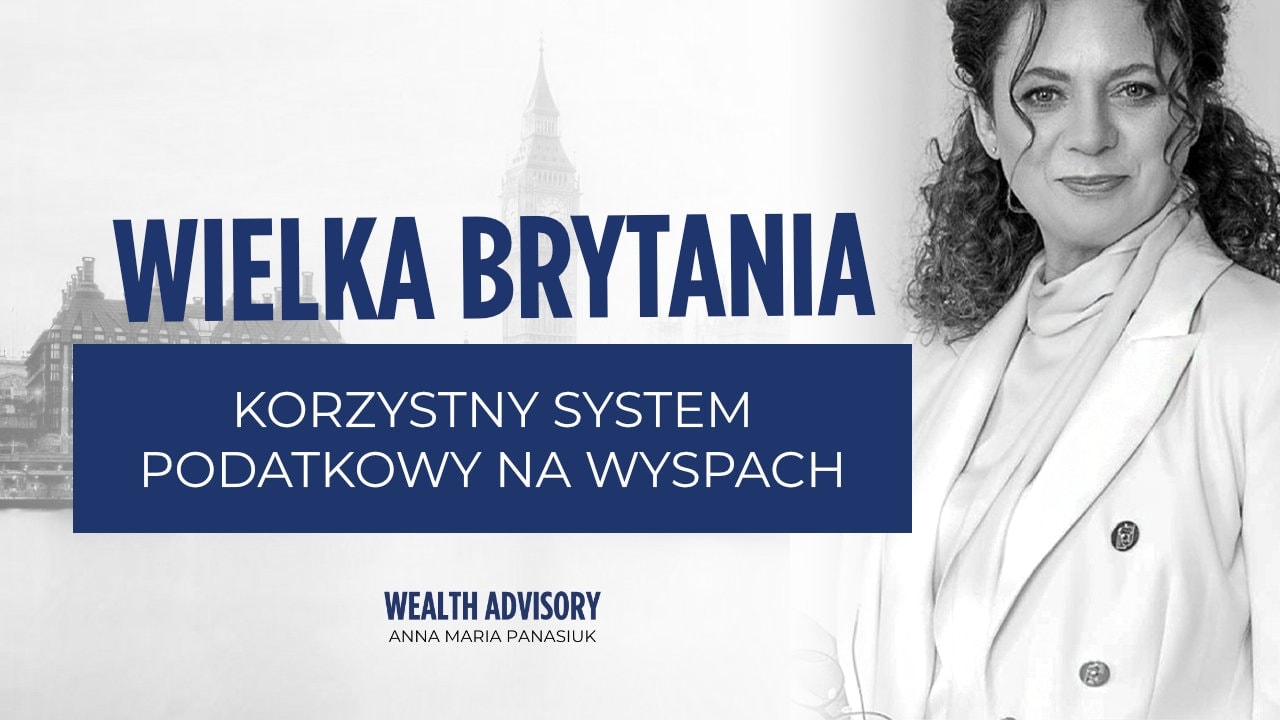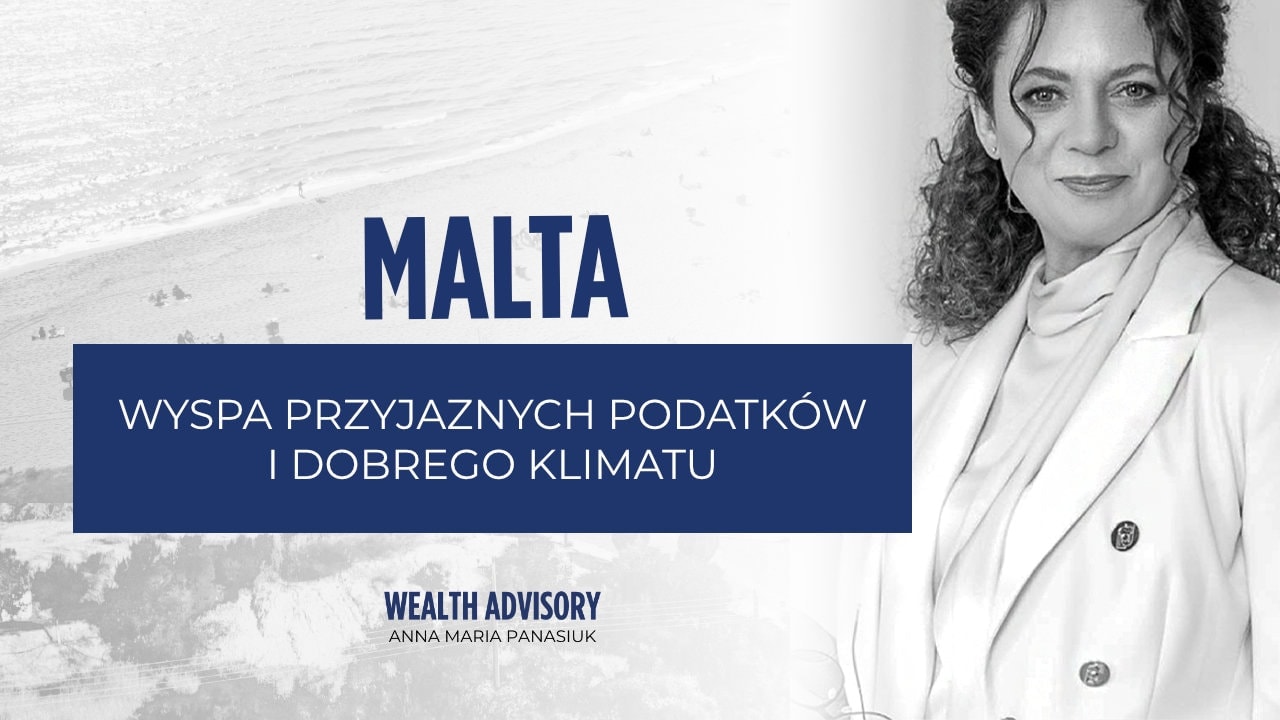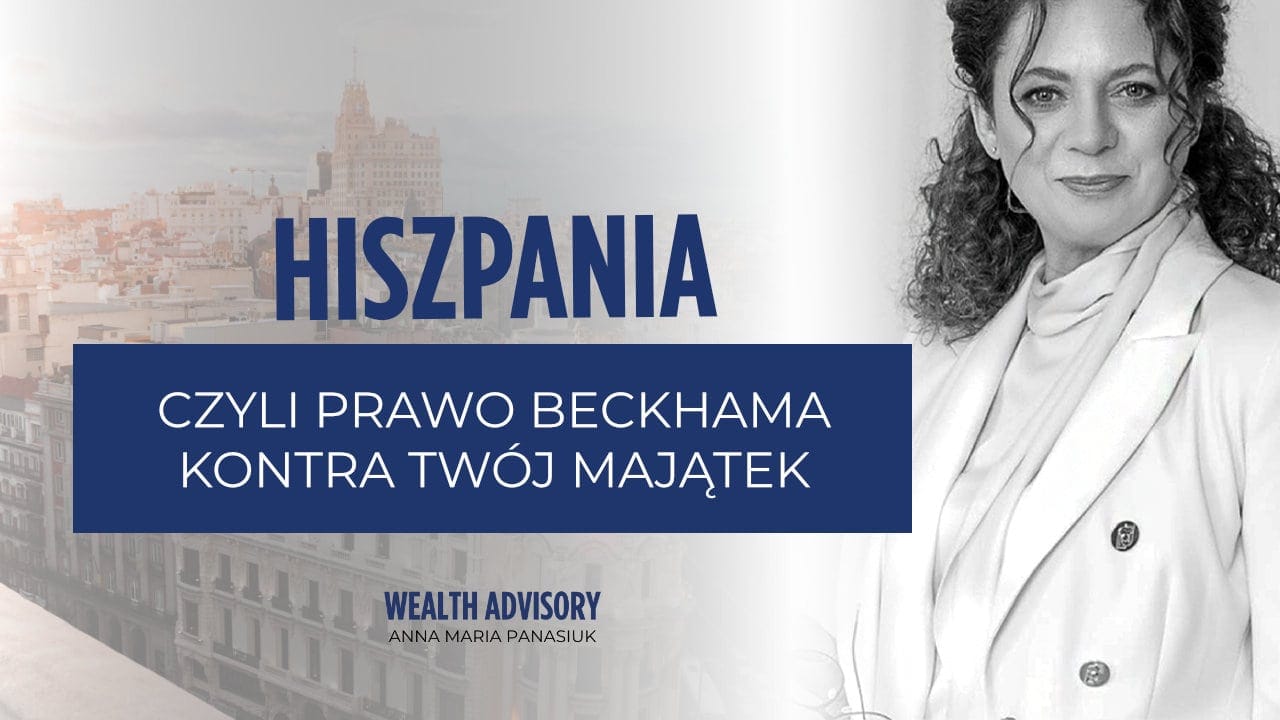Spain introduces a solidarity tax. The differences in taxation between the regions in Spain are thus expected to disappear. However, the matter is not so obvious. Experts have many reservations, and the changes were protested by the Community of Madrid, where an exemption from the wealth tax applies. The introduction of the tax is supposed to improve the country’s budget and will affect about 23,000 residents. See how the tax changes in Spain may affect your situation.
In Spain there is already a wealth tax in operation, which is paid on the value of the assets owned. It applies to both residents and non-residents, with non-residents paying it on the assets located within the territory of Spain (e.g., real estate) and residents paying it on their entire assets, located in other countries as well. Tax rates and the level of the tax exempt amount are set autonomously by the regions and range from 0.2% to 3.5% of the value of the assets and tax allowance of 700,000 euro (500,000 euro for Catalonia and Valencia).
However, this tax is administered by the Spanish regions, the so-called autonomous communities, which may increase or decrease the rate of the wealth tax. In this context, Madrid and, since September 2022, Andalusia maintain a full exemption from the wealth tax.
Table 1. Solidarity tax rates in Spain
| TAXABLE AMOUNT | TAX RATE |
|---|---|
| 0,00 – €167 129.45 | 0.2 % |
| €167 129,45 – €334 252.88 | 0.3% |
| €334 252.88 – €668 499.75 | 0.5 % |
| €668 499.75 – €1 336 999.51 | 0.9 % |
| €1 336 999.51 – €2 673 999.01 | 1.3 % |
| €2,673,999.01 – €5,347,998.03 | 1.7 % |
| €5 347 998.03 – €10 695 996.06 | 2.1 % |
| €10,695,996,06 and more | 3.5 % |
In the table above, we present the rates of the wealth tax in Spain. Currently, there are slight differences in tax rates, depending on the region, because each region can offer its own reliefs and amenities. If the region does not introduce such changes autonomously, the above wealth tax rates apply.
At the same time, on 27 December 2022, the solidarity tax was introduced “on a trial basis” in Spain! It will be applied during the years 2023 and 2024. After this period, it will be decided whether this tax is to be maintained.
NEW WEALTH TAX – SOLIDARITY TAX IN SPAIN
The introduced solidarity tax in Spain applies to the accounting periods of 2022 and 2023. This is a tax introduced for a trial period, currently applicable to only these two periods. After two years, retention of this tax as permanent element of the Spanish fiscal system is to be considered.
This tax has already been enacted and will be applied to the above-mentioned accounting periods (the solidarity tax is paid on the basis of the assets’ value for the year 2022, and this time solidarity tax will also be payable on the same basis when settling tax for the year 2023).
Duplicate Wealth Tax Disputed
At the moment, a debate about the constitutionality of the introduced tax is under way, due to the fact that Spain, currently, has a duplicate wealth tax (!). The Community of Madrid challenged it and filed an appeal before the Spanish Constitutional Court. By June 2023, it should be decided what will happen next. The decision when the tax should be settled will be made in June.
Rates of Solidarity Tax
The taxable base amount of the solidarity tax is the net asset value as at 31 December. This base amount is determined pursuant to the provisions on the wealth tax.
The provisions on exemptions from the wealth tax shall also apply to the wealth tax. Non-residents and people using the Beckham Law will be the exception in this area.
Table 2 Rates of solidarity tax in 2023 and 2024:
| Taxable base amount | Tax rate |
|---|---|
| 0 – €3,000,000 | 0% |
| €3,000,000 – €5,347,998 | 1.7% |
| €5,347,998 – €10,695,996 | 2.1% |
| over €10,695,996 | 3.5% |
This tax applies throughout the territory of Spain. One basic exemption and one basic deduction arising from property right apply to the above-mentioned tax thresholds;
- general exemptions of 700,000 euro,
- a deduction of 300,000 euro for the main residence.
The general exemption applies only to Spanish tax residents. Therefore, in the case of Spanish tax residents, the net asset value in excess of 4 million euro will be taxed, and for other persons (residents using the Beckham Law) in excess of 3,300,000 thousand euro.
According to the provisions on the solidarity tax, the value of an enterprise owned by a natural person will be exempted under the same conditions and with the same requirements as in the case of the wealth tax.
WHO IS THE SOLIDARITY TAX DUE FROM? WEALTH TAX COMPENSATION FOR SPANISH COMMUNITIES
Persons being tax residents in Spain will be subject to this tax in its entirety, i.e., it will apply to all of their “global assets”. Other people, who are not tax residents in Spain or ones who use the Beckham Law, will be subject to the solidarity tax on the assets held by them in Spain.
This tax complements the wealth tax. In accordance with the provisions on the solidarity tax, the amount that the taxpayer will pay under the wealth tax is deducted from the amount of the solidarity tax liability.
What about the tax in Andalusia?
In the case of Spanish Autonomous Communities like Andalusia, which has suspended collecting the wealth tax, and Madrid, which offers an exemption from it, it will not be possible to make deductions in solidarity tax for it as in other communities. This means that the new solidarity tax will have a strongly negative impact on the persons settling their taxes in these communities. Until now, they have benefited from a certain kind of privilege, as they did not have to pay the wealth tax. In connection with the introduction of the solidarity tax, the persons subject to tax obligation in Andalusia or Madrid will have to pay the wealth tax. However, they will not pay more of it, i.e. they will not be charged more tax than taxpayers in other communities. They will pay only the solidarity tax on the aforementioned terms.
Since the introduction of the solidarity tax, the attractiveness of the Community of Andalusia and the Community of Madrid with respect to the wealth tax has decreased and will now be comparable to the rest of Spanish regions. Thus, the taxpayers in Andalusia or Madrid who are Spanish residents will pay full solidarity tax according to the scale with a standard exempt amount of €4 million. Non-Spanish residents will pay the full tax according to the scale with a standard exempt amount of €3,300,000.
The Community of Catalonia and the Community of Valencia, where the wealth tax is applicable and currently levied, will not change their tax attractiveness, as the wealth tax will simply be deducted from the solidarity tax. In their case, however, it should be remembered that the standard exempt amount in the case of the wealth tax is €500,000 which will entail that, in the absence of interference by the Catalan and Valencian authorities in the solidarity tax of taxpayers in these Communities, wealth taxation will certainly not increase. This means that they will pay the wealth tax in accordance with community law and then deduct it in the solidarity tax.
Only the persons settling their tax in the communities of Galicia, Catalonia, Murcia, Asturias, Cantabria and the Balearic Islands, where, due to tax reliefs etc., the wealth tax is lower than the introduced solidarity tax, will pay a higher overall wealth tax.
How should the solidarity tax be calculated?
The introduction of the solidarity tax, in actual fact, causes the attractiveness of individual communities with regard to the wealth tax to become almost equalised.
In the regulations, it was indicated that the sum of the personal income tax, wealth tax and solidarity tax cannot exceed 60% of the taxable base amount for personal income tax. If this happens, the amount of the solidarity tax shall be reduced until reaching the limit of 60%. However, it cannot be reduced by more than 80% of the amount of the solidarity tax. This rule will only apply to Spanish tax residents.
Foreign wealth taxes paid by Spanish residents will be deductible from the same assets taxable by the solidarity tax under the rules provided in the regulations concerning the wealth tax. This will be applied regardless of any contract provisions on double taxation avoidance.
Some persons must appoint a representative who is a natural or legal person residing in Spain. These persons are:
- Non-resident taxpayers in Spain who are not residents in any other Member State of the European Union (EU),
- Non-resident taxpayers in Spain who are not residents in any other country of the European Economic Area (EEA), if there are provisions for mutual assistance in relation to the exchange and collection of tax information under the general rules of the Tax Ordinance,
- The taxpayers residing in Spain who leave Spain after a taxable event moving to a third country which is not part of the EU or the EEA (if it has legislation providing for mutual assistance in the exchange of tax information and collection), and if they intend to return to Spain after the deadline for the submission of their tax return.
The solidarity tax is a state-imposed tax, introduced by Spain and will be levied at a national, not regional, level. The maximum amount of the general exemption is €700,000, but regions can set their minimum threshold at a lower level. For the Basque Country and the Chartered Community of Navarre, this tax will be implemented in a special way.
WHY WAS THE SOLIDARITY TAX INTRODUCED IN SPAIN?
The Spanish government justifies the introduction of the solidarity tax as a response to the unfair/desirable tax competition of Andalusia and Madrid related to the wealth tax. Introducing fair rules for the Spanish community and the desire to enhance the budget with this move are other reasons.
COMMENTARY
If you have investment and business relationships with Spain, you should carefully analyse your assets located in Spain and their structure. The new tax was protested as unconstitutional and violating the freedom of competence on the part of autonomous communities, which is primarily aimed at overthrowing the policies of Madrid and Andalusia. There is no change to the fact that for the richest, the changes introduced may have their consequences, with the tax set to apply from the income from the years 2022 and 2023 – i.e. periods that have ended or are ongoing. In particular, if you use tax exemptions in Madrid and Andalusia, it is worth recalculating the impact of these changes.




















